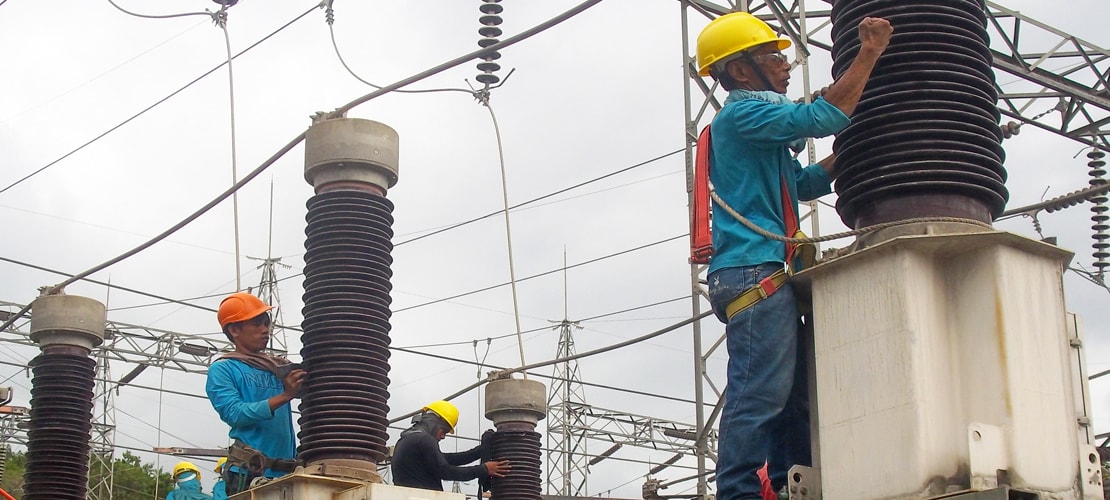Course Details
Your Growth, Our Mission

Course Description
The Training Course Will Highlight ?
This training course will provide an understanding of Power Transformers, their materials, components and how they operate. It also emphasizes the importance of QAQC in relation to transformers. The course will address in detail all aspects related to transformer principles, calculations, operation, testing and maintenance.
Training Objective
This training course will provide an understanding of Power Transformers, their materials, components and how they operate. It also emphasizes the importance of QAQC in relation to transformers. The course will address in detail all aspects related to transformer principles, calculations, operation, testing and maintenance.
Target Audience
Engineers and technicians from electricity supply industry - Engineering professionals from companies manufacturing and operating Power and Distribution Transformers Engineers and technical personnel in power utilities, petrochemical plants, service professionals of buildings and hospitals. Participants need no specific requirements other than basic understanding of electricity and magnetism and circuit theory and general knowledge of nature and operation of Power Transformers
Training Methods
This interactive Training will be highly interactive, with opportunities to advance your opinions and ideas and will include;
- Lectures
- Workshop & Work Presentation
- Case Studies and Practical Exercise
- Videos and General Discussions
Daily Agenda
Introduction, General Principles and Classification
- General Classification of Transformers: Transformer Construction, Core-Type, Shell-Type, Dry-type Transformers, Oil-filled Transformers, Cooling Techniques
- Transformer Windings, Interconnection of Windings, Advantages and Disadvantages of Principal Connections. Tertiary Windings, Autotransformers
- Harmonics in Transformers, Parallel Operation of Transformers, Loadings of Transformers in Parallel, Paralleling Requirements, Polarity
- Standards for Transformers, Types and Requirements
- Transformer Tapping’s and Connections
- Ability to withstand Short Circuit, Sound Level
- Case studies and workshop discussion
Transformer Constructional Details
- Transformer Oil, Characteristics, Oil Oxidation, Breakdown Voltage, Water Content, Acidity, Oil Testing, Field Oil Testing, Dissolved Gas Analysis, Treatment and Filtering of Oil
- Effect of Oil Expansion, Breathing Action, Buchholz Relay, Explosion Vents
- Instrument Transformers
- Transformers for Industrial Applications: Electro-chemical, Arc and Induction Furnaces, Rectifier Transformers, High Voltage Testing Transformers, Precipitator Transformers, Dry Type Transformers
- Construction And Details, Transformer Cooling, Natural Cooling, Forced Cooling
Transformer Features and Thermal Performance
- Thermal performance and Cyclic Rating of Transformers. Temperature indicators and alarms
- Transformer Impedance, Electromagnetic Forces
- Transformer Construction: Cores, Assembly
- Transformer Windings Construction: Coil Types, Disc Coils, Cross-over Coils, Concentric Coils, Sandwich Coils, Transpositions
- Transformer Tanks and Radiators, Tank Losses, Paint Treatments
- Transformer Fittings: Lifting Lugs, Undercarriages, Jacking Pads, Tie-Down Lugs, Bleed Pipes, Thermometers
Transformer Operation and Maintenance
- Distribution Voltage Adjustment, Off-Load Tap Changing, On-Load Tap Changing
- Switching of high voltage underground cables supplying Distribution Transformers
- Earthing and Over-Current Protection of Distribution Transformers
- Transformer Maintenance: Oil p reservation , Deterioration of oil, Breathers, Condition Monitoring, Faults in Transformers, Tapping’s and Windings
- Advanced Transformer Maintenance
- Guidelines on how to care for your Distribution Transformer
Transformer Testing
- Transformer Routine Tests, Measurement of winding resistance
- Measurement of voltage ratio
- Measurement of impedance voltage short-circuit impedance and load loss
- Measurement of No-load loss and current
- Insulation resistance, Harmonics testing
- Separate-source power-frequency voltage withstand test
- Induced overvoltage withstand test
- Transformer Type Tests
- Temperature rise test, Lightning impulse test
- Sound level, Special Tests: Transformer Partial Discharge testing
- Accuracy and Interpretation of test results and of test reports
Accreditation
BTS attendance certificate will be issued to all attendees completing a minimum of 80% of the total course duration.
Quick Enquiry
Request Info
Related Courses
Your Growth, Our Mission

